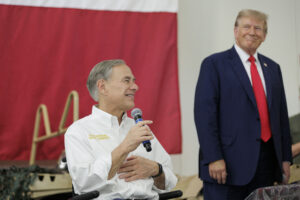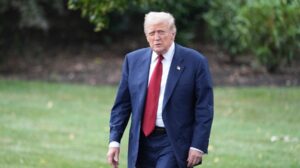The Dictatorship
The sad evidence that the conservative messaging on DEI is working
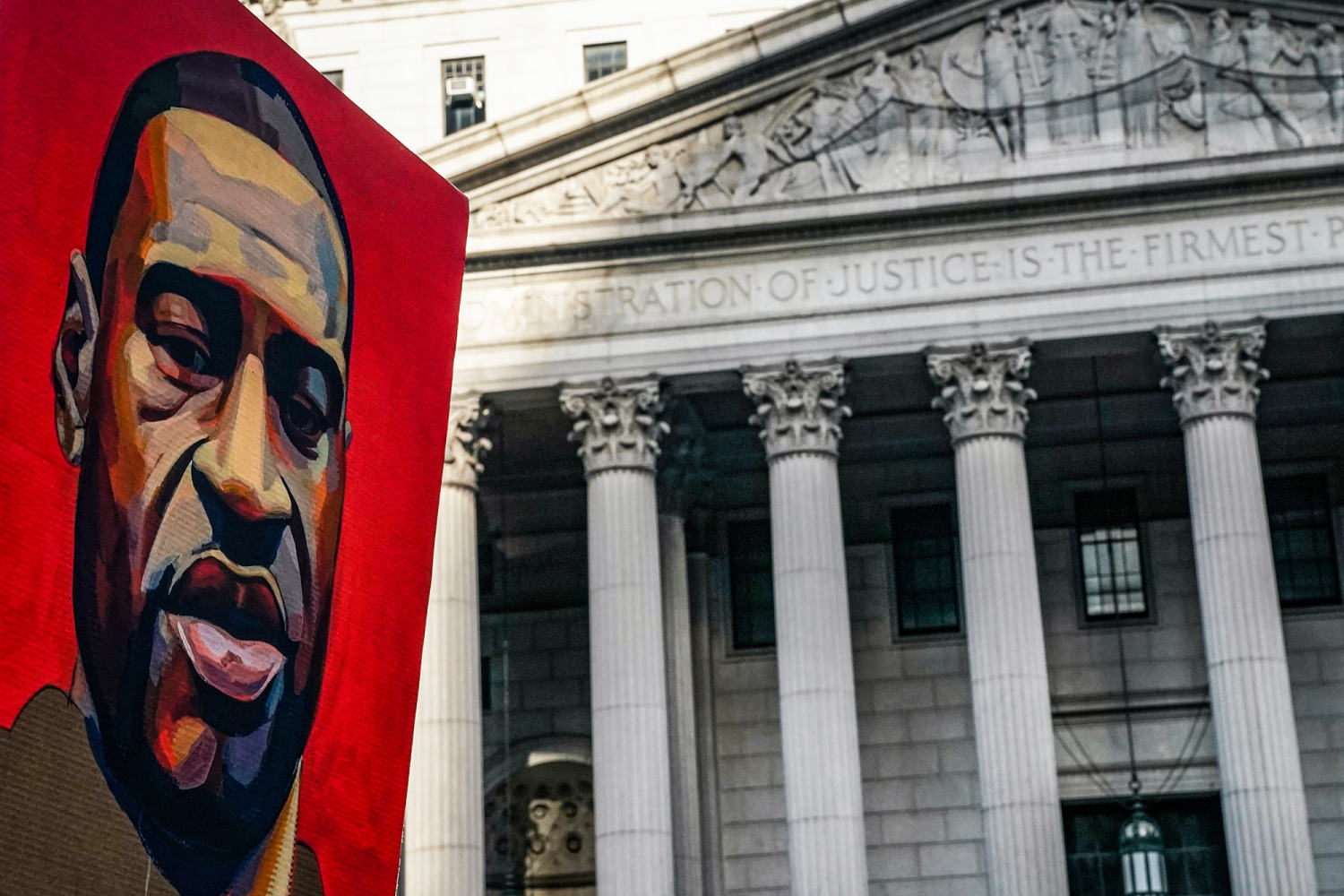
How sad it was to see a 48-year-old Black woman in an Associated Press story linking skepticism that Black people belong in certain places to diversity, equity and inclusion efforts. She told a reporter that now if someone sees “a Black girl in an engineering course” they may believe she’s “only here to meet a quota.” But questions about Black people’s intelligence and qualifications aren’t a function of DEI initiatives; they’re a function of racism.
Because why does a Black person in an enviable position (or a difficult class) warrant an explanation? And to whom is an explanation owed?
Why does a Black person in an enviable position warrant an explanation? And to whom is an explanation owed?
According to a survey recently conducted by The Associated Press-NORC Center for Public Affairs Researchthe percentage of U.S. adults who believe Black people in the U.S. face “a great deal” or “quite a bit” of discrimination was 60% four years ago but has now fallen to just below 50%. That story goes on to say: “Significant numbers of Americans also think diversity, equity and inclusion efforts, also known as DEI, are backfiring against the groups they’re intended to help.”
But it’s not true that DEI efforts are backfiring. What’s true is that people who feel threatened by a more diverse, equitable and inclusive society are firing back. They’ve worked, and not in secretto make words such as “critical race theory” and “diversity,” “equity” and “inclusion” toxic; they’ve even laid siege to the word “woke” and turned it into a slur.
What’s worse is that these neo-segregationists have the president of the United States and the power of that office on their side. And the president has a phrase — “Make America Great Again” — that suggests that our progress is problematic and that we ought to be moving backward and not forward.
And moving backward is exactly what this country is doing if people are becoming more exercised about DEI initiatives than the discrimination DEI initiatives are intended to address.
The poll from four years ago that found 60% of Americans believed discrimination was a real problem was conducted less than a year after Minneapolis police murdered George Floyd and protests in this country and around the world called attention to racism in America. We should all want discrimination to be less of a problem, but the belief that it is diminishing doesn’t seem rooted in empiricism.
“What the National Urban League can safely say, unequivocally, is that economic, education, health disparities are still broad and wide in America,” NUL President and CEO Marc Morial said by telephone Thursday. “Black people are tracking on all of these indexes maybe about 74% of what white Americans are,” he said, “and that’s what’s material.” Further proof, he said, is in “the huge number of EEOC[
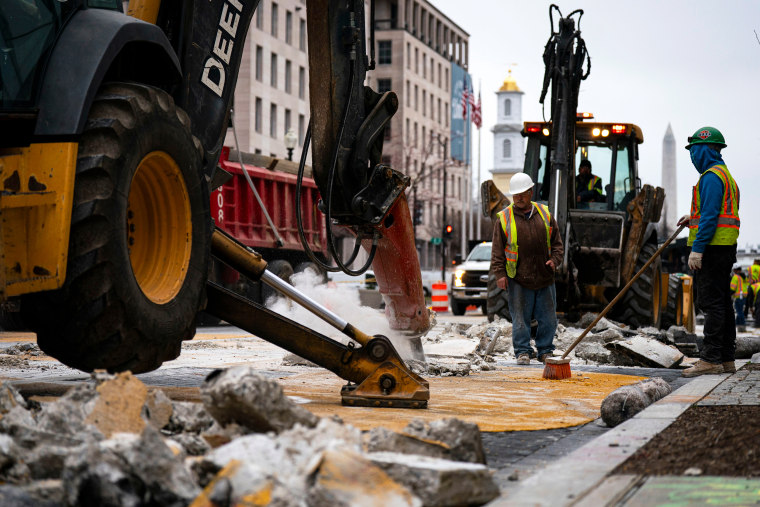
Morial said he suspects that people are conflating discrimination with expressions of bigotry — that is, with ugly outbursts that may include the use of racial slurs or epithets. Such ugliness is rarely exhibited, though, when a Black applicant is denied a job or a loan or an apartment they’d like to rent. The pleasantness of the person doing the rejecting doesn’t mean there wasn’t discrimination. “Racism is a system,” Morial said. “Bigotry is an individual attitude.”
Derrick Johnson, president and CEO of the NAACPsaid in an email Friday that the movement that followed Floyd’s murder “offered some hope” — but then “attacks on our community ramped up immensely” and “DEI — a positive initiative that gained incredible traction in 2020 — became demonized and politicized.” He said, “The once-disgraced president, whose time in office was marked by his racially-charged dog-whistles, was re-elected, and now — that same leader — is pushing to further gerrymander electoral maps and disenfranchise Black voters.”
Johnson said, “The notion that our community isn’t experiencing a great deal of discrimination could not be further from the truth — but it does say one thing: the extreme-right has been successful in communicating their narrative of America.”
There’s no doubt that the right-wing narrative has been persuasive to many people. But Johnson’s assertion that “people who don’t know what it’s like to be Black are buying that narrative” misses, I think, an important part of the story. The percentage of Black people who think discrimination is an issue has also trended down (from 83% in 2021 to 75% now).
I won’t argue with Black people who think things are improving — even if the data contradicts them — but the approximately 4 in 10 Black people who believe that DEI efforts are making things harder for Black people need to properly assign the blame for that increased hardship to the opponents of DEI initiatives and not to DEI initiatives themselves.
And they should give up the dream that there’s some set of conditions under which the accomplishments of, say, a Black woman engineer will be universally accepted as valid. Knee-jerk skepticism about certain people’s qualifications, which has a long history in this country, is one of the attitudes DEI programs are meant to address.
So how could getting rid of them make things better?
Jarvis DeBerry is an opinion editor for BLN Daily. He was previously editor-in-chief at the Louisiana Illuminator and a columnist and deputy opinion editor at The Times-Picayune.
The Dictatorship
Texas Democrats head to Illinois to deny Republicans a quorum on redistricting
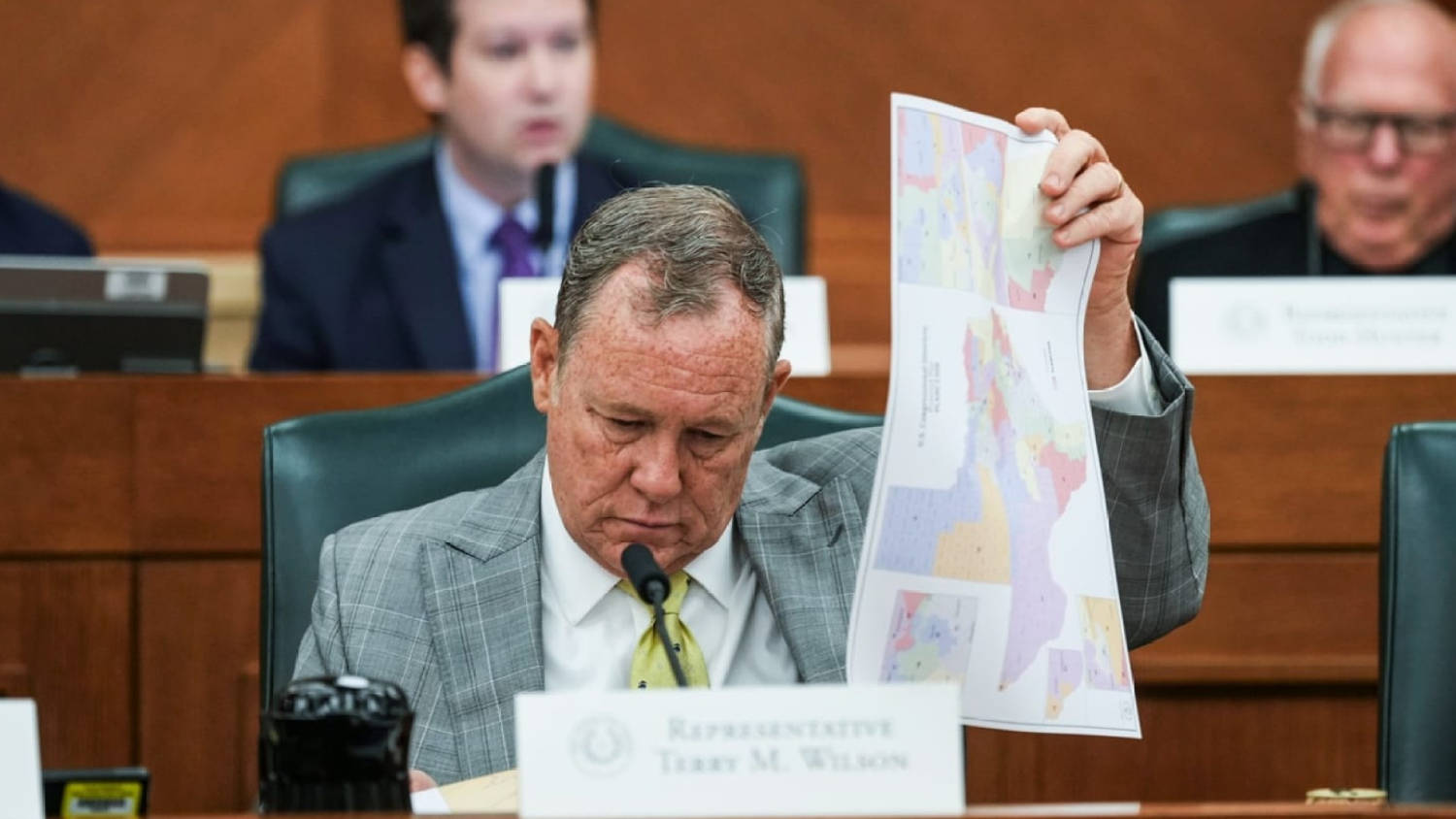
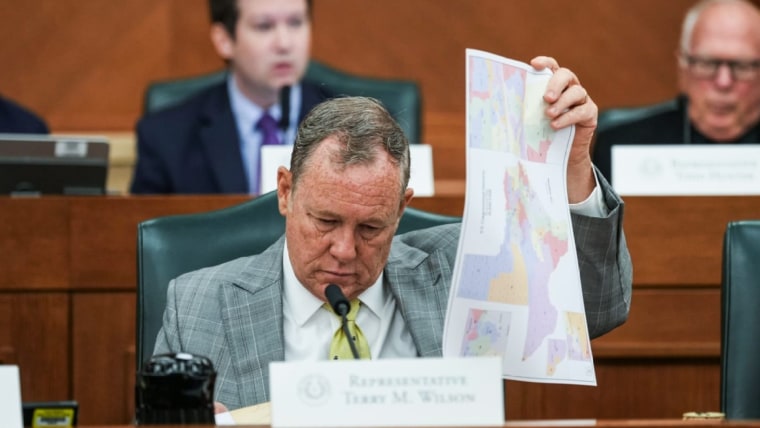
-
Now Playing

-
UP NEXT
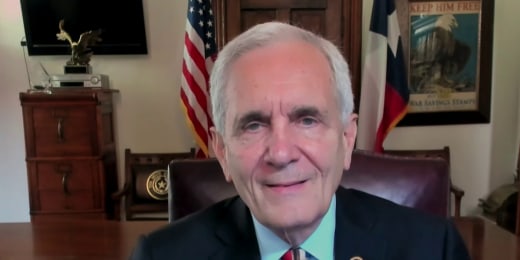
Doggett calls Texas redistricting map part of Trump plan to ‘win next year’s election this year’
11:44
-
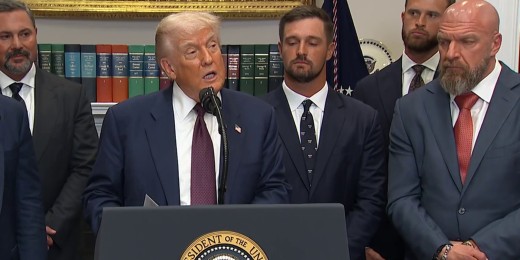
Health equity expert calls Trump’s school fitness test plan ‘political theater’
07:13
-
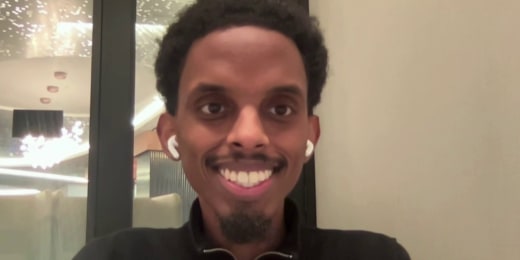
Minneapolis mayoral candidate Omar Fateh wants to build a city ‘that works for everyone’
07:55
-
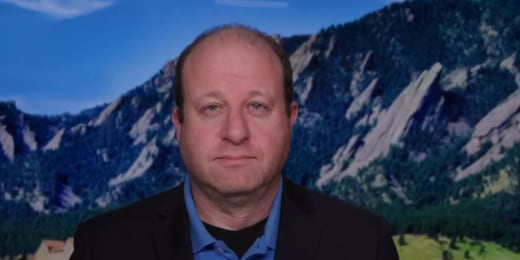
‘Going the wrong way’: Colorado Gov. Polis on Trump’s E.U. tariff negotiations
06:44
-

William McNeil Jr., the Black man who was punched in a viral Florida traffic stop, speaks out
07:21
-

Trump seeks to take away birthright citizenship ‘from everyone’: League of United Latin American Citizens CEO
07:15
-
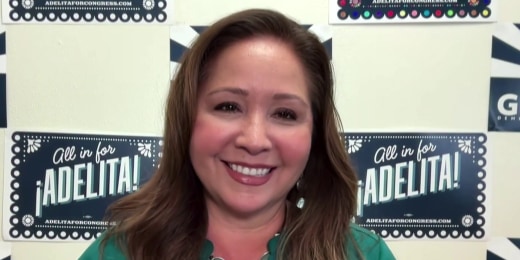
Adelita Grijalva could become the first Latina to represent Arizona in Congress
09:30
-
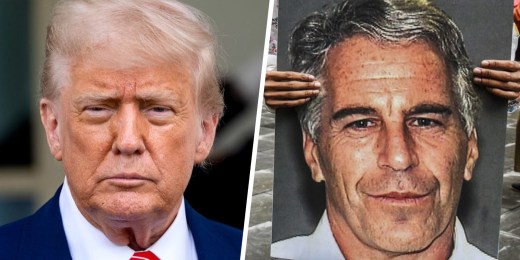
Writer foresees Epstein saga following Trump for the rest of his presidency
04:04
-

‘The American people deserve transparency’ about Epstein case: Rep. DelBene
08:07
-
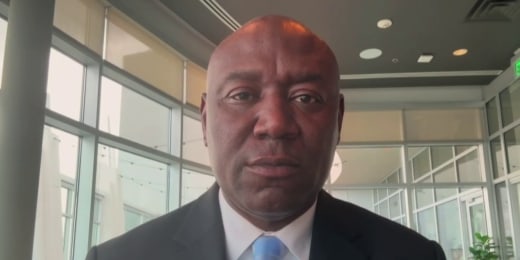
Trump DOJ seeking one day in prison for ex-officer in Breonna Taylor case is ‘insulting’: Ben Crump
09:24
-
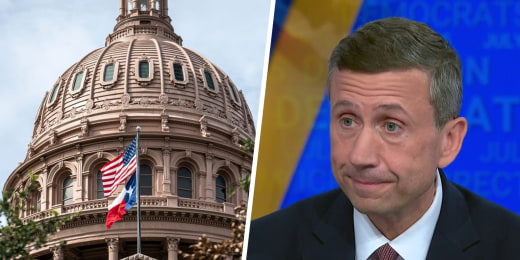
DNC Chair issues stark warning to Texas Republicans in redistricting battle
08:13
-

Two women dead and multiple people injured, including trooper, in Kentucky shootings, officials say
00:58
-
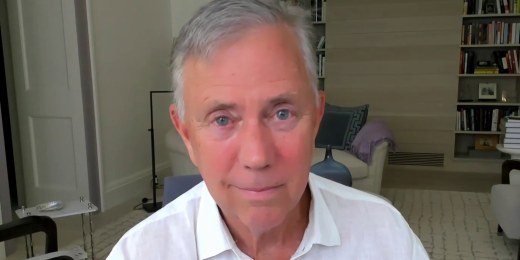
‘I just don’t know if I can count on FEMA right now’: Connecticut Gov. Lamont as hurricane season continues
06:10
-
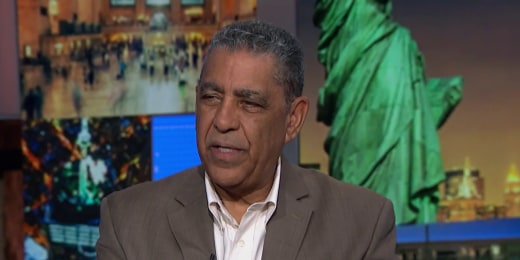
House Democrat compares Trump’s birthright citizenship fight to segregation
09:16
-
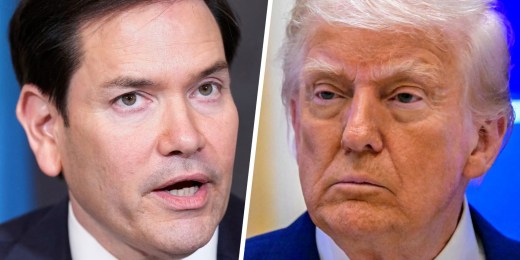
Mass layoffs at State Department have begun
03:02
-
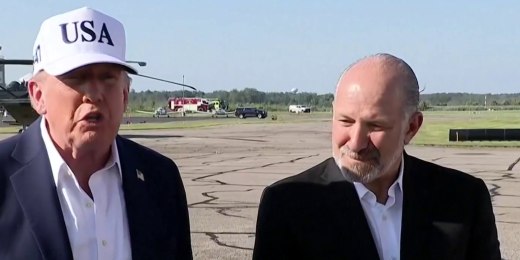
Trump says he will ‘probably’ visit Texas as death toll from flooding climbs to 79
08:09
-

Desperate search for survivors continues after Texas flooding kills at least 79
02:23
-
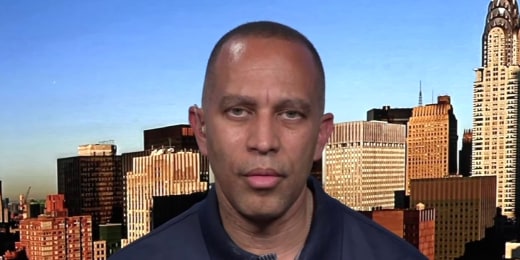
Rep. Jeffries: Trump’s megabill will ‘end effectively Medicaid as we know it’
10:44
-
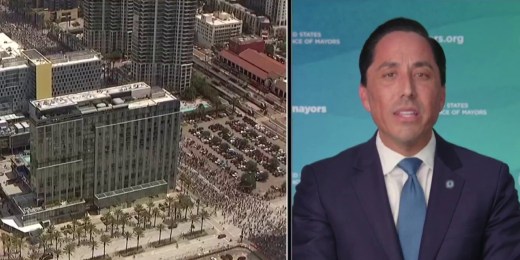
‘Literally gets nothing done’: San Diego mayor calls out Trump admin’s ‘performative’ politics
06:13
BLN
-
Now Playing

Texas Democrats head to Illinois to deny Republicans a quorum on redistricting
04:48
-
UP NEXT

Doggett calls Texas redistricting map part of Trump plan to ‘win next year’s election this year’
11:44
-

Health equity expert calls Trump’s school fitness test plan ‘political theater’
07:13
-

Minneapolis mayoral candidate Omar Fateh wants to build a city ‘that works for everyone’
07:55
-

‘Going the wrong way’: Colorado Gov. Polis on Trump’s E.U. tariff negotiations
06:44
-

William McNeil Jr., the Black man who was punched in a viral Florida traffic stop, speaks out
07:21
The Dictatorship
Trump is reviving an outdated and problematic practice for American school children
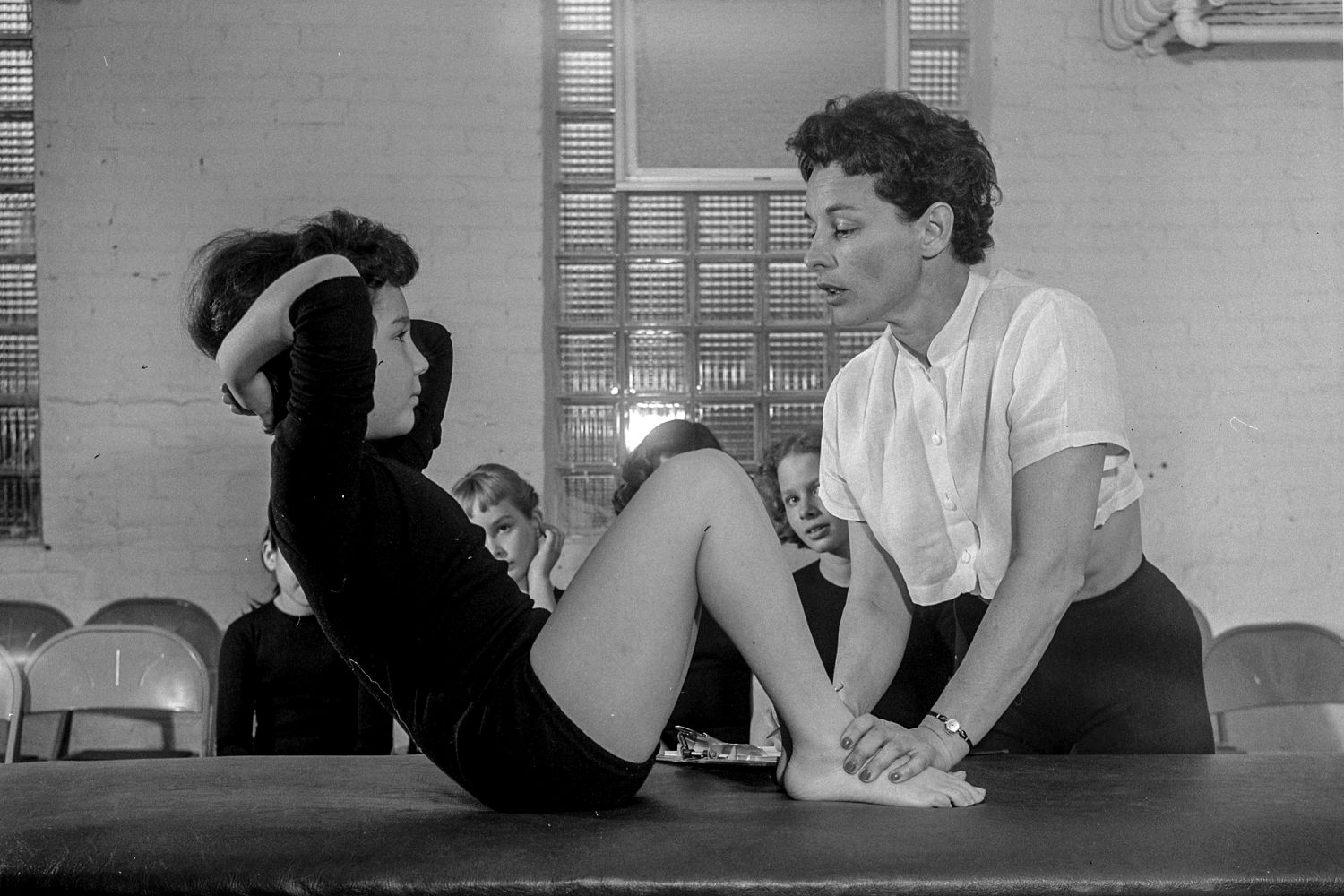
Everyone knows that American kids — and adults — need more exercise. If President Donald Trump’s recent decision to reinvigorate the federal Presidential Council on Sports, Fitness, and Nutrition and reinstate the Presidential Fitness Test helps get more kids moving, as he promises, it would be a welcome step in the right direction. But what we know so far about this reboot — and Trump’s record on fitness — should make us wary of its ability to actually combat the epidemic of sedentariness that contributes to all kinds of health conditions, from obesity to mental illness.
The executive order re-establishes the council, which Trump had renamed during his first term to place “sports” before “fitness,” a subtle choice that apparently prioritizes competitive athletics over recreational exercise. Much of the language of the new order echoes the initiatives of earlier administrations, highlighting issues of obesity and insufficient military preparedness. Most notably, though, the order hits a competitive note, aiming to “reward excellence in physical education” and to develop criteria for a Presidential Fitness Award, an initiative in keeping with maintaining “America’s global dominance in sports.”
During his first term, Trump famously disdained exercise as a dangerous waste of our ‘nonrechargeable battery’ — invoking a discredited 19th-century theory.
It is worth considering what an unlikely ambassador for fitness Trump is. During his first term, he famously disdained exercise as a dangerous waste of our “nonrechargeable battery” — invoking a discredited 19th-century theory — and is well known for his decidedly unhealthy habits. Back in 2017, I wrote about how Trump was a rare exception in a culture increasingly embracing “wellness” across the political aisle, especially as a sign of personal discipline, success and refinement.
Presidents in both parties had regularly touted their workout routines since the 1960s, after all: think Jimmy Carter joggingor Ronald Reagan on a Nautilus machine. Wealthy people in the 2010s were increasingly showing off their expensive technical running gear and posting about their boutique fitness classes on new social media sites. But Trump trashed exercise itself as stuck-up and silly, while flaunting an older archetype of affluence: the “fat cat,” eating steak and double servings of dessert, and choosing leisure over exercise except for traditionally masculine sports like football or as a way for women to stay slim.
As a passion for exercise was uncontroversially spreading across American culture, regardless of political affiliation, on a policy level, it was most associated with two Democratic administrations: those of John F. Kennedy and Barack Obama. During the first Trump administration, obliterating everything Obama-adjacent was a core objective of Trump’s, and shuttering the Let’s Move program, a linchpin of first lady Michelle Obama’s platform, was a natural place to start. Trump officially ended the nutrition program on her birthday, and right-wing supporters crowed that the federal government would no longer be slapping their hands from the cookie jar or moralizing about exercise. (JFK was then so far in the rearview mirror that few people besides historians like me and a few diehards trying to keep his dream alive were talking about the president who had advocated for physical fitness in every school, recreation in public spaces, and the need to emphasize inclusive fitness over exclusive, competitive sport.)
But Americans have a short memory, and by the 2024 election cycle, prioritizing fitness became a natural GOP priority. During the pandemic, gym owners whose businesses were shuttered by Covid policies were at the forefront of the anti-lockdown resistance. Wellness influencers whose all-natural lifestyles had once appeared apolitical, or even left wing, railed against vaccine mandates and Big Pharma. Body positivity embraced by progressives led conservative critics to denounce them as promoting unhealthy behaviors. And liberals like me who dared to point out that some strands of American fitness culture really had been about strengthening white bodies were an easy target for shock jocks who gleefully denounced the libs for claiming even something as innocuous as exercise was racist. (When Donald Jr. came after me with this line of attack after an ill-conceived headlineI received a barrage of messages, including death threats, that the gym was better off without woke feminists anyway.)
In 2025, Robert F. Kennedy Jr., emerged as the perfect person to crystallize these dynamics into a movement — and to soften their harder edges with a backward-looking nostalgia for his uncle’s physical fitness programs, grainy black-and-white footage of which figured in his promotional campaigns and MAHA messaging. In the clip of his announcement of the new initiative he shared to InstagramKennedy directly invoked his uncle’s 1960 Sports Illustrated article, “The Soft American,” and thanked Trump for revitalizing this legacy. Correctly, Kennedy has long claimed that exercise is a crucial part of preventive health, but he melds it with an often conspiratorial hostility to government, experts and industry alike. This he has connected to a throwback (and not entirely accurate) vision of a world in which American children were much healthier.
That’s the driving message behind Trump’s reboot, but he’s missing some key context from the JFK days, as well as innovations that we’ve seen since — especially made by Obama. Gone is JFK’s emphasis on inclusive, publicly funded recreation. And, crucially, JFK supported vaccines and Medicare.
Many took to social media to express how traumatizing they found the Presidential Fitness Test. That is, how the test Trump is resurrecting undermined the council’s goals, in that it celebrated the best athletes and alienated others.
Upon this week’s announcement, many took to social media to express how traumatizing they found the Presidential Fitness Test. That is, how the test Trump is resurrecting undermined the council’s goals, in that it celebrated the best athletes and alienated others, turning off many from a future of movement. For this reason, the Obamas retired the Presidential Fitness Test in favor of the Fitnessgram, which was less hierarchical and more focused on holistic lifestyle. And Trump apparently didn’t learn from one of JFK’s key mistakes: While the PCF’s campaigns encouraged citizens to lobby their local communities to spend on these programs, they were not funded with significant federal appropriations, meaning they were never more than an advisory and marketing campaign, albeit a very effective one at shifting Americans’ association with regular exercise in a positive direction.
That’s right: JFK was roundly mocked by his conservative opponents for celebrating weak, inclusive fitness over manly, elite sport. JFK’s “fits of fitness,” one critic wrote, revealed his silliness, and seemed to promote mediocrity. But just as he defended Medicare against charges of promoting “socialized medicine,” JFK insisted that the nation’s “vigor” could only be recaptured by a national fitness program that included not only children, but men and women (he dropped the “Youth” from Dwight D. Eisenhower’s Presidential Council on Youth Fitness to make this universalism clear, and was also regularly photographed swimming, playing catch and hiking to embody the ideal himself).
In any historical moment, it seems, getting Americans to exercise is an uphill battle. Like his predecessors, Trump has enlisted celebrities to promote the cause, and his picks are revealing. Announcing the initiative alongside the president was former professional wrestler Paul Levesque, aka Triple H, the latest member of the embattled WWE empire to join the presidential administration (he is Secretary of Education Linda McMahon’s son-in-law). On the White House’s Instagram, Triple H emerges from the White House doors like he’s entering a ring and sprays water from his mouth like he’s ready to whip American children into shape, whether they like it or not.
The swaggering, solo, white machismo is obvious — and about as far a cry as it gets from Beyoncé dancing with a cafeteria full of New York City schoolkids to promote the Obamas’ program. And of course, the WWE is primarily an entertainment franchise, not an athletic one, a fact that is both perfectly on brand for the Trump administration and further suggests this effort might be more show than substance.
I too am deeply concerned about the lack of exercise among American children and adults, and am thrilled this is an administration priority. Yet I worry that Trump is bringing back the narrowest version of JFK’s vision, having learned little from fitness culture since, making it unlikely that this endeavor will improve the fitness and overall health of everyday Americans.
Natalia Mehlman Petrzela is Professor of History at The New School in New York City. She is the author of two books, most recently “Fit Nation: The Gains and Pains of America’s Exercise Obsession,”and is currently a Carnegie Fellow, working on a new book about education and political polarization.
The Dictatorship
The Smithsonian’s changing stories about Trump and impeachment
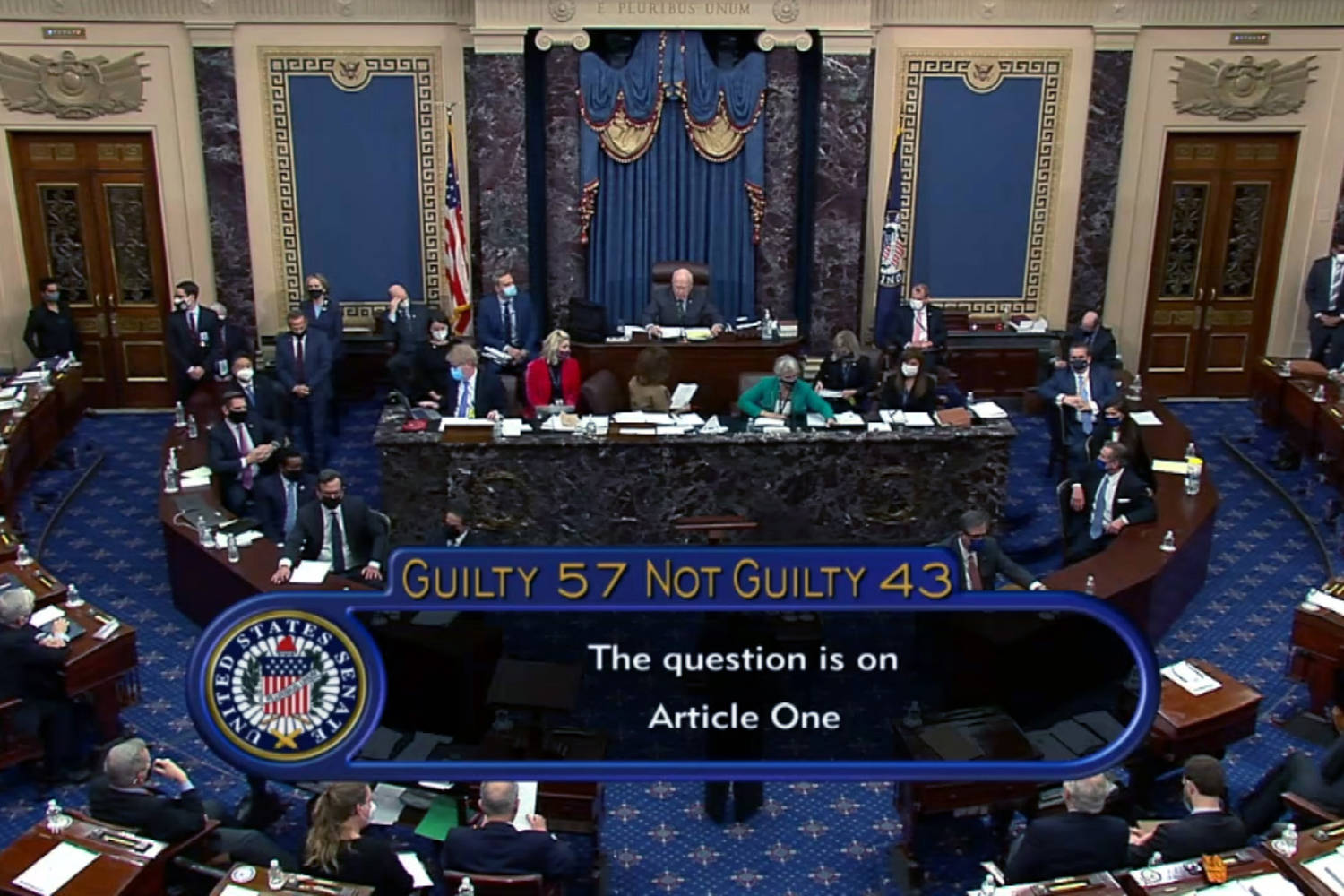
The Smithsonian’s National Museum of American History wants us to believe that there’s been a misunderstanding and that it’s not the latest major institution to wave a white flag before President Donald Trump.
In a move that critics worried could be an attempt to better align itself with Trump’s vision, the NMAH, as The Washington Post reported Thursday, removed mention of President Donald Trump’s impeachments from one of its main exhibitions, “The American Presidency: A Glorious Burden.” Congress leveled impeachment charges against Trump — twice. And Trump called the House of Representatives’ 2019 vote to impeach him “an embarrassment to the country.”
Trump called the House of Representatives’ 2019 vote to impeach him ‘an embarrassment to the country.’
But following accusations from Senate Minority Leader Chuck Schumer, D-N.Y., Friday that Trump was attempting to “rewrite history,” the museum said in a statement Saturday that information about Trump’s impeachment trials will be returned to the exhibit soon and that the placard mentioning those impeachments “did not meet the museum’s standards in appearance, location, timeline, and overall presentation.” The statement also said that the museum had not been “asked by any Administration or other government official to remove content from the exhibit.”
If you find that explanation hard to believe, that’s probably because the Smithsonian has been a preoccupation of Trump’s and his selectively backward-looking MAGA political movement. This year, Trump issued an executive order called “Restoring Truth and Sanity to American History” that blasted the Smithsonian’s acclaimed National Museum of African-American History and Culture as promoting “divisive race-centered ideology.” Shortly thereafter, Trump accused Kim Sajetthe director of the Smithsonian’s National Portrait Gallery, of being a “highly partisan person, and a supporter of DEI” and called for her removal. She eventually resigned.
In that initial Thursday report, The Washington Post’s Janay Kingsberry noted that the NMAH edited the “Limits of Presidential Power” section of its exhibition by turning back the clock and removing information about Trump’s impeachments that had been on display since September 2021. In a statement to the newspaper for Thursday’s story, Smithsonian spokesperson Phillip Zimmerman said, “The section of this exhibition covers Congress, The Supreme Court, Impeachmentand Public Opinion. Because the other topics in this section had not been updated since 2008, the decision was made to restore the Impeachment case back to its 2008 appearance.” The timing has understandably raised eyebrows.
Only after that story was published did the Smithsonian tell the newspaper that “a future and updated exhibit will include all impeachments.” In Saturday’s statement, the museum mentioned the appearance of the placard and said the update would be made “in the coming weeks.” For accuracy’s sake, we should hope so.
As it stands now, though, the section only includes President Andrew Jackson’s 1868 impeachment, President Bill Clinton’s 1998 impeachment and President Richard Nixon’s 1973 impeachment hearings. While Trump stands alone as the only U.S. president to be impeached twice, there’s presently no mention of this distinction.
The exhibit now says ‘only three presidents have seriously faced removal,’ but that hasn’t been true for almost six years.
As The Washington Post notes, the exhibit now says “only three presidents have seriously faced removal,” but that hasn’t been true for almost six years.
Though the Smithsonian insists it wasn’t pressured by Trump, The Washington Post’s Thursday report said the Trump references were removed from the impeachment exhibit after the Smithsonian undertook a full-scale content review following pressure from the White House and accusations of partisan bias. Again, that jibes with Trump’s statements about the Smithsonian’s museums and with his forcing out of the portrait gallery’s director.
Indeed, after months of political pressure, the Smithsonian announced in June that directors at all of the Smithsonian’s 21 museums and galleries were required to inspect their content and make any changes, including personnel changes, to “ensure unbiased content.”
Mention of Trump’s impeachments just so happened to be erased weeks later.
Over the decades, the Smithsonian has occasionally found itself ensnarled in political controversy and faced pressure to modify its exhibitions. For the 50th anniversary of the U.S. dropping atomic bombs on Japan, the Smithsonian’s Air and Space Museum repeatedly adjusted its content about the decisive action and its tragic fallout in response to political outrage over even a whiff of critical reflection about the bombings. Eventually, the museum canceled the exhibition altogether, and its director, Martin Harwit, resigned after Congress called for his removal and threatened to cancel funding.
More than a decade later, the National Portrait Gallery made headlines for pulling a video installation commenting on the 1980s AIDS crisis on the grounds it was sacrilegious.
Of course, we’d suspect Trump of being involved in the editing out of his impeachments when he and his MAGA political movement support censorship and revisionist histories that recast the United States and Trump himself as heroic and blameless.
Of course, we’d suspect Trump of being involved in the editing out of his impeachments.
Saturday’s statement from the Smithsonian says it hasn’t yielded to political pressure. Let’s hope that’s true, because like the dismantling of DEI programs and the multimillion-dollar settlements agreed to by universities under attack from Trump’s government, any capitulation from the Smithsonian would hit hard. We expect, we need more from our civil society institutions if they are to serve as a counterbalance to political and economic power. Civil society, which includes our public museums, libraries and universities, is not separate from politics or the economy, but it’s important that those institutions not be dictated by them.
Let’s face it: Like all colonial projects, museums are not neutral,but they have long been essential in supplementing school curricula, serving as research centers, educating American and international tourists, and contributing to regional economies. It’s impossible to imagine Washington, D.C., without the National Mall and its assorted museums, monuments and memorials. But it’s getting easier to imagine wild additions and deletions being made to them without truth or the public’s trust in mind.
This is especially the case considering that White House spokesperson Davis Ingle characterized the Smithsonian’s removal of Trump’s impeachments as an opportunity to better “highlight American greatness” rather than what the Trump administration considers “divisive” content. We’re left to wonder what further changes we’ll see, who will make the final call and with whose interests in mind.
Truthfully representing our national history, including the shameful parts and not just the heroic ones, is the Smithsonian’s glorious burden. Unfortunately, with the way this latest move was executed, there’s reason to doubt it’s up for the challenge.
Robyn Autry
Robyn Autry is a sociology professor and director of the Center for the Study of Public Life at Wesleyan University. She is the author of “Desegregating the Past: The Public Life of Memory in the U.S. and South Africa.”
-
Uncategorized9 months ago
Bob Good to step down as Freedom Caucus chair this week
-

 The Josh Fourrier Show9 months ago
The Josh Fourrier Show9 months agoDOOMSDAY: Trump won, now what?
-

 Politics9 months ago
Politics9 months agoWhat 7 political experts will be watching at Tuesday’s debate
-

 Politics9 months ago
Politics9 months agoHow Republicans could foil Harris’ Supreme Court plans if she’s elected
-
Economy9 months ago
Fed moves to protect weakening job market with bold rate cut
-

 Politics9 months ago
Politics9 months agoRFK Jr.’s bid to take himself off swing state ballots may scramble mail-in voting
-
Economy9 months ago
It’s still the economy: What TV ads tell us about each campaign’s closing message
-

 The Dictatorship6 months ago
The Dictatorship6 months agoPete Hegseth’s tenure at the Pentagon goes from bad to worse



